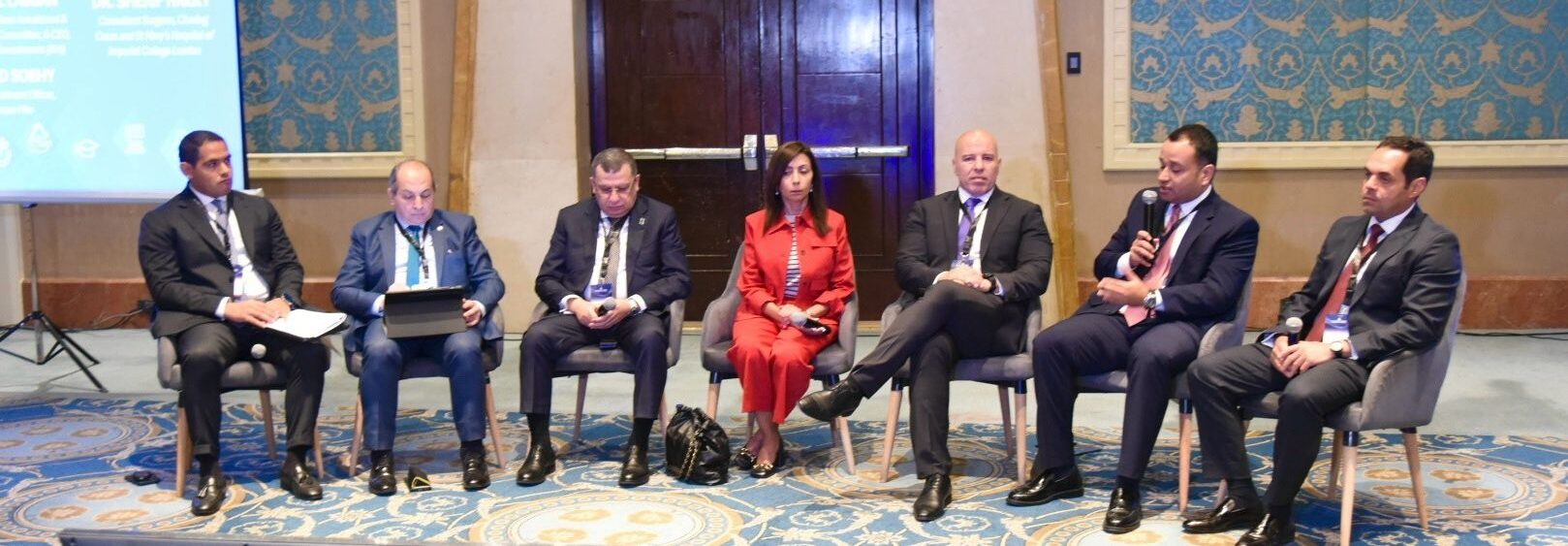At the American Chamber of Commerce in Egypt (AmCham Egypt) Investment Conference on April 29, a session titled “Advancing Healthcare: Policy Reforms and Investment Strategies” brought together industry leaders and policymakers to examine Egypt’s evolving healthcare landscape. The discussion focused on the sector’s transformation, driven by demographic changes, policy reforms, and increasing investor interest.
Bottlenecks in the system
Magdi Bakr, Senior Chairman Advisor for Technical Affairs at the Egypt Healthcare Authority, opened the session by highlighting the dual role of health as both a public service and an economic catalyst.
“Health is an investment and is actually a driver for economic and social development. The reason to consider health a priority is due to population growth, the aging population, the burden of disease, and relatively low investment in health,” Bakr explained.
He stressed the importance of political commitment in pushing forward healthcare reform, particularly following the 2014 constitutional amendments that made health a development priority. “The main driver for this endeavor is actually the political will,” he said, pointing to Egypt’s phased rollout of universal health insurance. The first phase has already covered six governorates, with the second phase targeting 12 to 13 million people.
Aging population and chronic disease add pressure
Egypt’s healthcare system is increasingly strained by demographic trends, especially a rising average age and the growing burden of chronic diseases. Ahmed Ezzeldin, Chair of the AmCham Healthcare Committee and CEO of Cleopatra Hospitals Group, underscored this shift:
“The average age of a man was like the end of the 60s, now it’s the end of the 70s,” he said, noting the growing need for long-term and specialized care.
Ezzeldin also highlighted Egypt’s cost advantage in healthcare services. “The cost of treatment in Egypt is extremely, extremely low. We’re like 30 to 40% lower than India when it comes to the cost of treatment here,” he said, positioning the country as a potential hub for medical tourism and healthcare investment.
Private sector leads in expansion
Omar El Labban, Co-Chair of the AmCham Investment and Capital Market Committee and CEO of B Healthcare Investments (BHI), emphasized the essential role of private providers, who currently operate around 65% of Egypt’s healthcare facilities.
“Very few players are allowing consolidation play in this. So this is another avenue for investment,” El Labban stated, while also noting the lengthy and complex licensing process as a barrier to growth.
Logistical challenges undermine sector potential
Mohamed Haroun, Co-Chair of the AmCham Healthcare Committee and Regional Director at GE Healthcare, pointed to Egypt’s underutilized geographic advantage in healthcare logistics.
“It’s illogical not to use the geographic location. It should be more economical to ship from Egypt to Nigeria, not from France or Germany,” Haroun remarked, calling for improvements in shipping and export infrastructure to boost efficiency and competitiveness.
Shortages in human capital and diagnostic infrastructure
Hend ElSherbini, Co-Chair of the AmCham Healthcare Committee and CEO of Integrated Diagnostics Holdings (IDH), emphasized the rising demand for diagnostic services amid demographic and epidemiological pressures.
“We have a growing population, an aging population, and a high prevalence of chronic diseases,” she said, highlighting the need for significant investment in infrastructure and services.
Sherif Hakky, Consultant Surgeon at Charing Cross and St. Mary’s Hospital of Imperial College London, addressed the acute shortage of healthcare professionals. “We have only about 6.8 doctors per 10,000 people, while the WHO recommends 17,” he warned, highlighting the urgent need to invest in medical education and expand the healthcare workforce.
A sector poised for growth—with reform as the catalyst
Egypt’s healthcare sector is ripe for reform and investment, supported by strong government commitment and a growing role for private providers. However, challenges such as regulatory bottlenecks, logistical inefficiencies, and workforce shortages must be addressed to unlock the sector’s full potential.
As Egypt works toward universal health coverage and expands its healthcare infrastructure, the country stands at a critical juncture—one where smart investment and targeted reforms could reshape the future of healthcare for millions.




